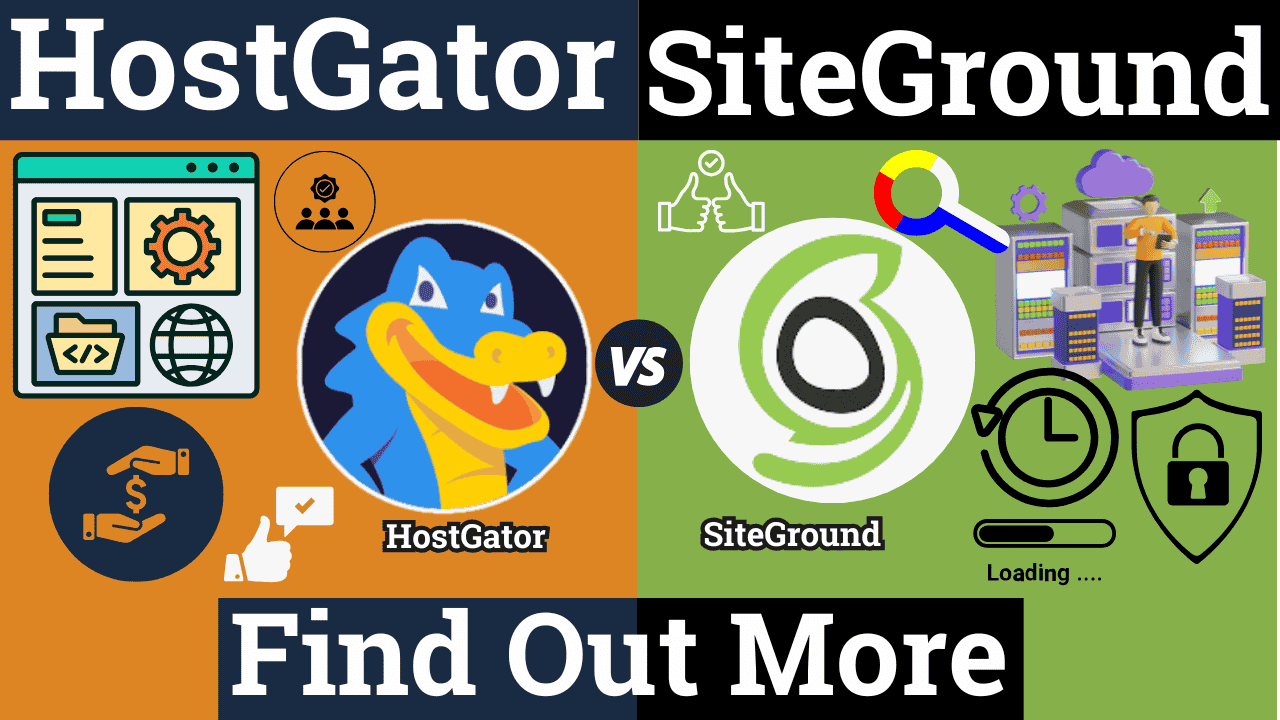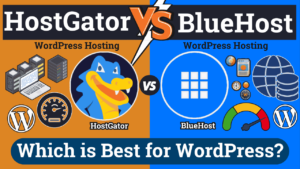Web hosting is the backbone of your website. Whether you’re running a personal blog, an e-commerce platform, or a corporate site, the hosting provider you choose can significantly impact your site’s speed, reliability, and security. Two of the most prominent names in the hosting industry are HostGator and SiteGround. Each brings unique features, strengths, and limitations to the table.
This article provides an in-depth comparison of these two giants to help you make an informed decision. From pricing and performance to customer support and security, we’ll break down every essential aspect of their services. By the end of this blog, you’ll know which hosting provider suits your needs best.
Table of Contents
Company Overview
HostGator and SiteGround have established themselves as top players in the web hosting industry, but their approaches and audiences differ significantly.
HostGator, founded in 2002, quickly became a popular choice among individuals and small businesses due to its affordability and user-friendly features. Known for its beginner-friendly services, it offers straightforward tools like cPanel and one-click installations that cater to first-time website owners. Its reputation is built on reliability and competitive pricing, making it a go-to choice for those on a tight budget. Unlock Your Success With HostGator: 6 Ultimate Service Offered
On the other hand, SiteGround, founded in 2004, has cultivated a reputation for premium services. Partnering with Google Cloud, it has focused on delivering high-performance hosting solutions with an emphasis on speed, uptime, and security. SiteGround is particularly popular among WordPress users and developers who require advanced features and exceptional customer support. Why SiteGround Web Hosting is the Best Choice
While HostGator appeals to cost-conscious beginners, SiteGround targets users seeking performance, reliability, and robust tools for website management.
Pricing and Plans of HostGator and SiteGround
Pricing is often a deciding factor for many users, and this is where HostGator and SiteGround differ significantly.
HostGator offers some of the most affordable entry-level plans in the market. Its shared hosting plans start at just $3.75 per month, which includes features like a free SSL certificate and unmetered bandwidth. This makes it an attractive option for new website owners. However, users should note that HostGator’s renewal rates are significantly higher, which can come as a surprise once the initial term expires.

SiteGround, while slightly more expensive, offers more value for money with its introductory plans starting at $3.99 per month. These plans include daily backups, CDN integration, and advanced caching tools, which are not always available with HostGator’s basic plans. However, similar to HostGator, SiteGround also has higher renewal rates, which may be a concern for budget-conscious users.
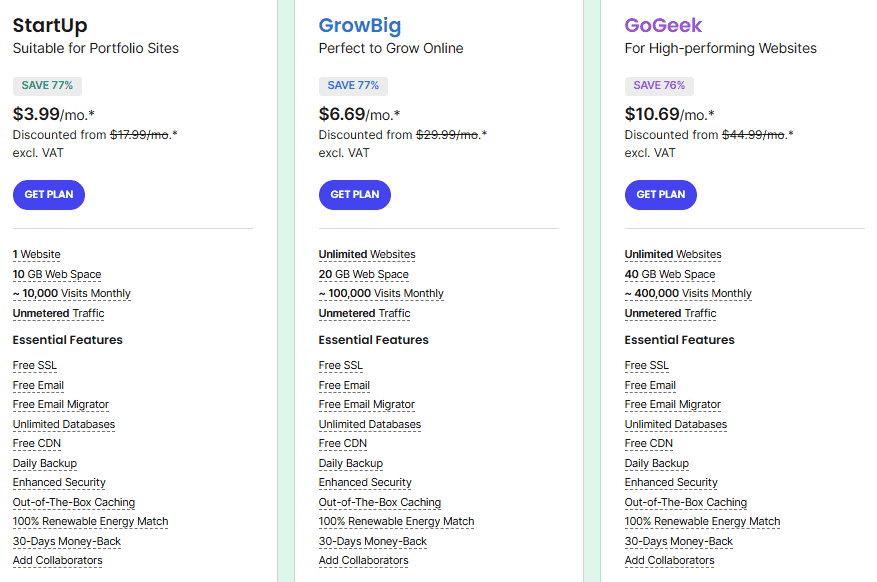
For premium hosting options like VPS and cloud hosting, HostGator provides more budget-friendly solutions, whereas SiteGround’s cloud hosting, starting at $100 per month, is tailored for businesses seeking top-tier performance and scalability.
Performance and Uptime of HostGator and SiteGround
When it comes to performance, SiteGround takes the lead. With an uptime of 99.99%, SiteGround ensures minimal downtime, a crucial factor for businesses that rely on uninterrupted website accessibility. Its partnership with Google Cloud allows it to leverage state-of-the-art infrastructure, resulting in faster loading times and enhanced global performance. Tools like its proprietary SuperCacher further optimize speed, particularly for WordPress websites.
HostGator also guarantees a solid 99.9% uptime, which is impressive but slightly less consistent than SiteGround’s track record. While HostGator uses SSD storage to improve loading times, it lacks some of the advanced optimization tools provided by SiteGround, making it a step behind in terms of speed and performance during high-traffic scenarios.
For users prioritizing speed and reliability, SiteGround is the superior choice.
Features and Tools of HostGator and SiteGround
HostGator focuses on simplicity and ease of use. Its control panel, based on cPanel, is intuitive and allows users to manage their hosting accounts with minimal effort. The one-click installation feature simplifies the process of setting up WordPress or other CMS platforms, making it a favorite among beginners.
SiteGround, however, shines with its advanced tools. Its custom dashboard is user-friendly yet powerful, offering features like staging environments for testing changes before going live. The SuperCacher technology enhances website speed by optimizing how data is stored and delivered. For WordPress users, SiteGround’s hosting plans include specialized plugins like the Speed and security Optimizer, designed to improve performance and manage caching.
SiteGround is better suited for users seeking robust tools and features, while HostGator is ideal for those who want simplicity.
Customer Support of HostGator and SiteGround
SiteGround offers award-winning 24/7 customer support through live chat, phone, and email. Known for their technical expertise, the support team helps users resolve issues and optimize their sites efficiently. Higher-tier plans offer advanced support options. SiteGround is recognized for its reliability, speed, and commitment to customer success, making it an ideal choice for businesses looking to grow their online presence.
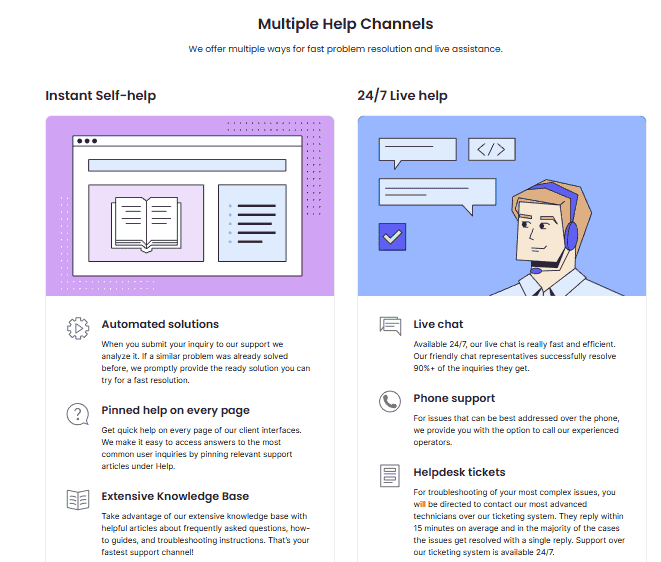
HostGator offers 24/7 customer support through multiple channels, including live chat, phone, and email tickets. Customers can expect quick and helpful responses, although wait times may vary during peak hours. For those who prefer self-help, HostGator provides a comprehensive knowledge base with tutorials and FAQs. The support team is highly experienced, capable of assisting with a wide range of technical issues such as site migration, SSL setup, and server configurations. This makes HostGator a reliable choice for those seeking consistent and knowledgeable support.
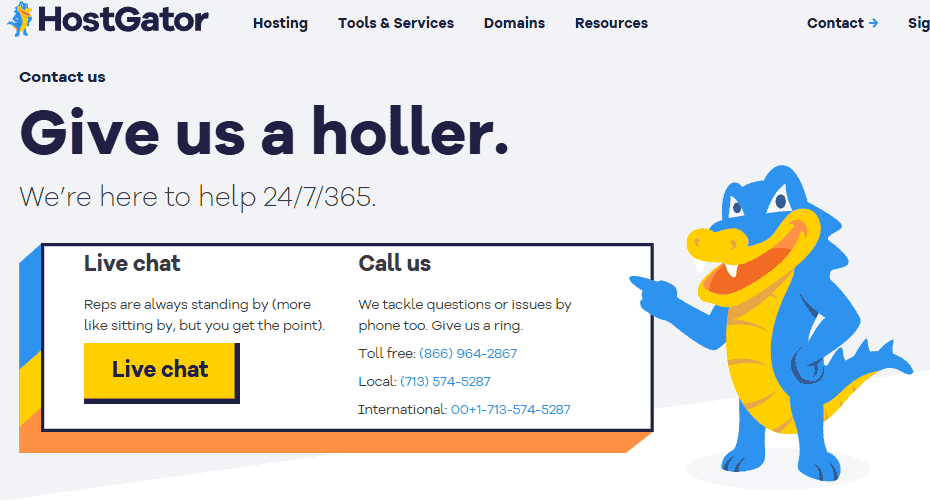
For users who may require frequent or urgent assistance, SiteGround is the better option.
Security Features
Security is a top priority for any website owner, and both providers offer essential protections.
HostGator includes free SSL certificates and offers basic malware scanning. However, advanced security features like automated backups come at an additional cost.
SiteGround, in contrast, includes daily backups, advanced firewall systems, and enhance security in all its plans. These features provide a more secure environment, ensuring peace of mind for users handling sensitive data.
SiteGround clearly provides a more comprehensive security package compared to HostGator.
Ease of Use
HostGator and SiteGround both cater to different levels of technical expertise. HostGator’s cPanel is straightforward and perfect for beginners looking for a no-fuss hosting solution. Its one-click installation tools and simple interface make it an excellent choice for those building their first website.
SiteGround’s custom dashboard, while slightly more advanced, remains user-friendly and provides greater control for users with intermediate to advanced technical skills. The additional tools and options may be overwhelming for complete beginners but are invaluable for developers and agencies.
Conclusion
The HostGator and SiteGround showdown highlights the strengths and weaknesses of both providers.
- HostGator is a solid choice for beginners and budget-conscious users. Its affordable pricing, intuitive interface, and variety of plans make it a reliable option for small websites and first-time users.
- SiteGround, on the other hand, is ideal for those who prioritize performance, security, and support. Its advanced tools, excellent uptime, and tailored solutions make it a standout choice for WordPress users, developers, and growing businesses.
Final Verdict: While HostGator is the better option for affordability and simplicity, SiteGround takes the crown for premium features and overall performance.
FAQs on HostGator and SiteGround
Which is better, HostGator or SiteGround for beginners?
HostGator offers affordable shared hosting, VPS, and cloud hosting plans. SiteGround focuses on premium hosting solutions, including shared, cloud, and managed WordPress hosting, with more advanced features like staging environments and custom caching tools. that developers may need for complex projects.
What is the difference between HostGator and SiteGround?
HostGator is known for its affordability and user-friendly tools, making it ideal for beginners and budget-conscious users. SiteGround, on the other hand, offers premium services with a focus on speed, uptime, and advanced tools, catering to developers, WordPress users, and growing businesses.
Which hosting provider is more affordable?
HostGator offers lower introductory prices, starting at $3.75 per month for shared hosting, making it a great choice for those on a tight budget. SiteGround’s plans start at $3.99 per month, though they include more advanced features like daily backups and CDN integration.
How do the performance and uptime compare?
SiteGround has an impressive 99.99% uptime, ensuring minimal downtime. It also leverages Google Cloud for enhanced speed and performance. HostGator guarantees 99.9% uptime, but lacks some of the advanced optimization tools that SiteGround offers, which can affect performance during high-traffic periods.
Which provider offers better customer support?
SiteGround offers 24/7 customer support through live chat, phone, and email, with a reputation for fast, expert assistance. HostGator also provides 24/7 support through multiple channels but may have longer wait times during peak hours.
What security features do HostGator and SiteGround offer?
HostGator provides free SSL certificates and basic malware scanning, but advanced security features require additional costs. SiteGround, however, includes daily backups, advanced firewalls, and enhanced security features in all its plans, providing a more comprehensive security package.
Which provider is easier to use?
HostGator is more beginner-friendly with its simple cPanel and one-click installations. SiteGround’s custom dashboard is slightly more advanced, offering powerful tools and options that cater to users with intermediate to advanced technical skills.
Which hosting provider is better for WordPress websites?
SiteGround is widely recognized for its excellent WordPress hosting, including specialized plugins like the Speed and Security Optimizer. HostGator also supports WordPress, but SiteGround offers more advanced tools for optimizing WordPress sites.
Have you used HostGator or SiteGround? Share your experiences in the comments below! If you’re ready to choose, explore their plans today and find the hosting provider that best fits your needs.

